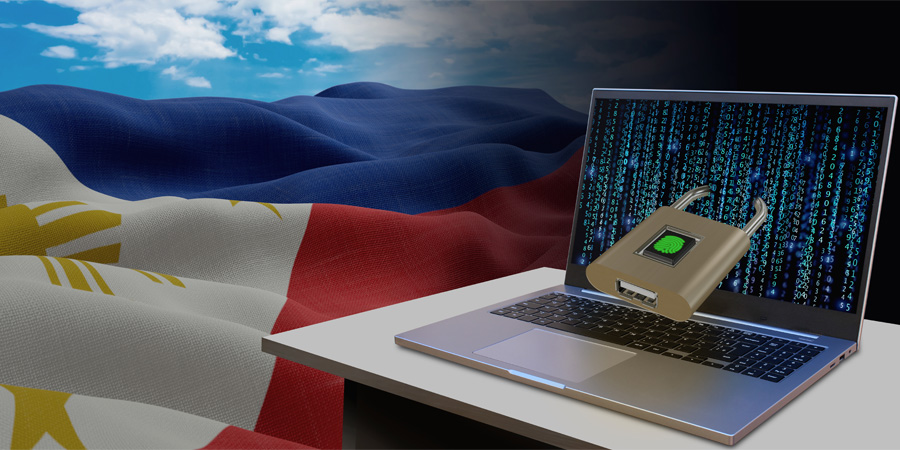In an age where data serves as the new oil, the Philippines faces a growing challenge in safeguarding the privacy and security of its citizens' information within the telecom sector. With the rapid advancement of technology and the proliferation of digital services, concerns regarding data privacy and security have become increasingly prominent.
Growing Concerns
The Philippines' telecom sector has witnessed remarkable growth in recent years, fueled by increasing internet penetration and the widespread adoption of mobile devices. However, alongside this growth comes a myriad of challenges, particularly in ensuring the protection of personal data. According to the U.S. Department of Commerce's International Trade Administration, these challenges encompass various risks, including malware, data breaches, and unauthorized access to sensitive information.
The country's digital economy, as reported by the Philippine Statistics Authority (PSA), surged to approximately USD 36.5 billion in 2022, contributing significantly to its Gross Domestic Product (GDP). This growth, spanning digital transactions in infrastructure, e-commerce, and digital media, underscores the fundamental role of digital-enabling infrastructure, primarily driven by telecommunications services.
Digital transformation remains a core focus area outlined in the Philippine Development Plan (PDP) 2023-2028, with directives from President Ferdinand Marcos emphasizing the need to digitalize essential public services. This includes initiatives like common tower infrastructure expansion, the digitalization of business registration processes, and the implementation of a national broadband plan.
However, alongside these advancements come pressing concerns regarding data privacy and security. The Philippines is facing heightened risks of cyberattacks and security breaches due to its tech-savvy population and limited data protection measures.
One of the significant issues contributing to data privacy concerns is the mandatory SIM card registration implemented by the government. While intended to enhance national security and combat illegal activities, such as terrorism and fraud, this initiative has raised apprehensions regarding the protection of personal data. The National Privacy Commission (NPC) in the Philippines has recognized these concerns and has initiated discussions with telecom companies to address potential privacy risks associated with the SIM registration process.
Moreover, a study conducted by Unisys Corporation revealed that the Philippines exhibits the highest level of concern among surveyed countries regarding data security and privacy. This highlights the urgent need for comprehensive measures to bolster data protection frameworks within the telecom sector.
Regulatory Framework and Industry Responses
Recognizing the critical importance of data privacy and security, the Philippine government has taken steps to strengthen regulatory frameworks in this area. The Department of Information and Communications Technology (DICT) has emphasized the necessity of developing security standards and frameworks, particularly in the context of 5G technology.
With the increasing complexity of the 5G infrastructure and the growing reliance on ICT and operational technology (OT) systems, the country is facing heightened cyber threats. Vulnerabilities in 5G architecture, such as the radio access network (RAN) and core network, along with the proliferation of Internet of Things (IoT) devices, are exacerbating security risks.
To address these challenges, the DICT has initiated efforts to develop and adopt security standards and frameworks tailored to the telecommunications sector. The National Cybersecurity Plan (NCSP) 2022 underscores the importance of protecting critical information infrastructure and emphasizes the need for collaboration between public and private sectors to enhance cybersecurity measures.
One significant initiative is the adoption of the Global System for Mobile Communications (GSMA) Network Equipment Security Assurance Scheme (NESAS). NESAS provides a comprehensive security assurance framework for evaluating the security of mobile network equipment, covering aspects such as vendor development processes, product lifecycle management, and security testing. By adhering to NESAS standards, vendors can demonstrate their commitment to ensuring the integrity and security of their products.
The DICT, in collaboration with relevant stakeholders, has conducted a series of meetings and consultations to promote the adoption of NESAS and establish minimum equipment security standards. These efforts have been met with positive feedback from industry stakeholders, who recognize the importance of enhancing cybersecurity in the telecommunications sector.
Moving forward, the Philippines aims to leverage globally recognized cybersecurity standards like NESAS to bolster the security and reliability of its mobile network infrastructure. By adhering to these standards, the country seeks to build trust in the digital era, stimulate competition, promote innovation, and ensure the resilience of its telecommunications networks. With the momentum gained by NESAS adoption in other regions, the Philippines is poised to strengthen its cybersecurity posture and protect the interests of its citizens in an increasingly digital world.
Challenges and Opportunities
Despite these efforts, several challenges persist in data privacy and security within the Philippines telecom sector. Limited awareness among consumers regarding data protection rights and best practices remains a significant obstacle. Moreover, the evolving nature of cyber threats poses a constant challenge for telecom companies and regulatory authorities alike.
However, amidst these challenges lies opportunities for innovation and collaboration. By encouraging partnerships between government agencies, industry stakeholders, and cybersecurity experts, the Philippines can develop complete approaches to address data privacy concerns effectively. Furthermore, initiatives aimed at raising public awareness and promoting digital literacy can empower individuals to take proactive steps in safeguarding their personal information.





